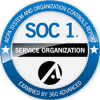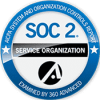In a recent publication for HealthLeaders Media, Rene Letourneau cites four healthcare payer priorities for 2016:
- Making Better Use of IT and Data
- Embracing New Business Models
- Enhancing Care Coordination
- Reducing Administrative Costs
These are entirely consistent with the evolving trends in healthcare for improved value-based care and improved population health. While these are likely high priorities across both payers and providers, their attainment is significantly more complex. InfoMC provides technology solutions that support all four priorities.
One way to look at these priorities is to see them as a series of cascading demands for the new era of healthcare. Financial and clinical reforms demand that both payers and providers adopt new business models that shift fee-for-service financing of care to more outcomes-based systems of care. Patient-centered care requires better alignment between those who pay for care and those who provide it. With a goal of improving health, services must no longer rely on what is convenient and expedient for the providers. Care models are changing and new technologies are driving both consumer demand and provider adoption. InfoMC applauds payers and providers striving to adopt new business models and offers solutions to foster this direction.
As technology and data systems expand, payers and providers have the potential for a wealth of new information to guide their practice. This includes predictive analytics to identify those at risk for poor health outcomes and better engagement of those in need. Traditional electronic health systems are useful for tracking care, but often limited in their capacity of bring the full care team together in an environment of shared information.
Through a suite of data analytics that support care coordination workflows, InfoMC provides real-time solutions for evolving healthcare strategies.
Care coordination requires that all providers and health-related systems of care are able to share sensitive patient information and promotes an environment of collaboration aimed at improving outcomes. This approach demands that care is coordinated across physical and behavioral health as well as social- and community-based services. True care coordination occurs when information is leveraged for better patient and health system engagement and personal activation for improved health status. Care coordination technology solutions provided by InfoMC promote full care team integration and established workflows guide the coordination of care across provider and payer systems.
Effective new business models for clinical service make better use of information technology, promote care coordination, and improve the overall quality and outcomes of care. These priorities also promote reduced administrative costs as health service efficiencies are achieved and improved outcomes produce better overall value. InfoMC offers the solutions to achieve the emerging payer and provider priorities for 2016 and beyond.
For more information on InfoMC solutions, visit www.infomc.com or contact us at 484-430-0100 or sales@infomc.com.
By Allen S. Daniels, Ed.D., Clinical Director, InfoMC








